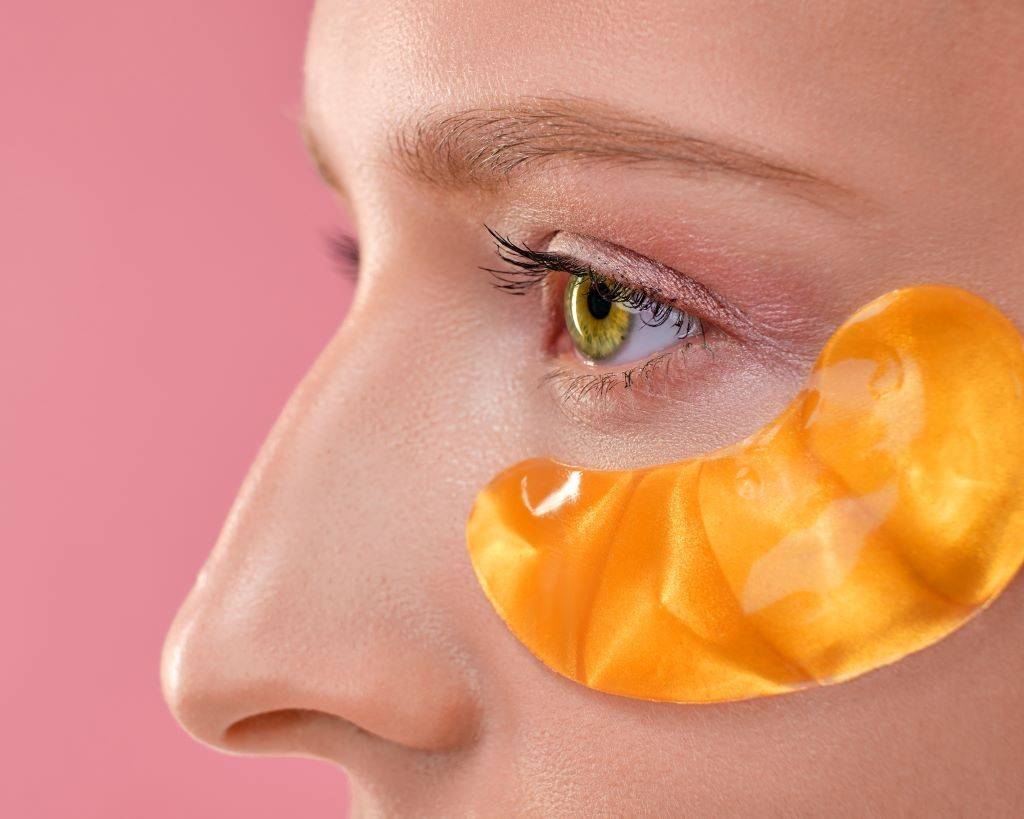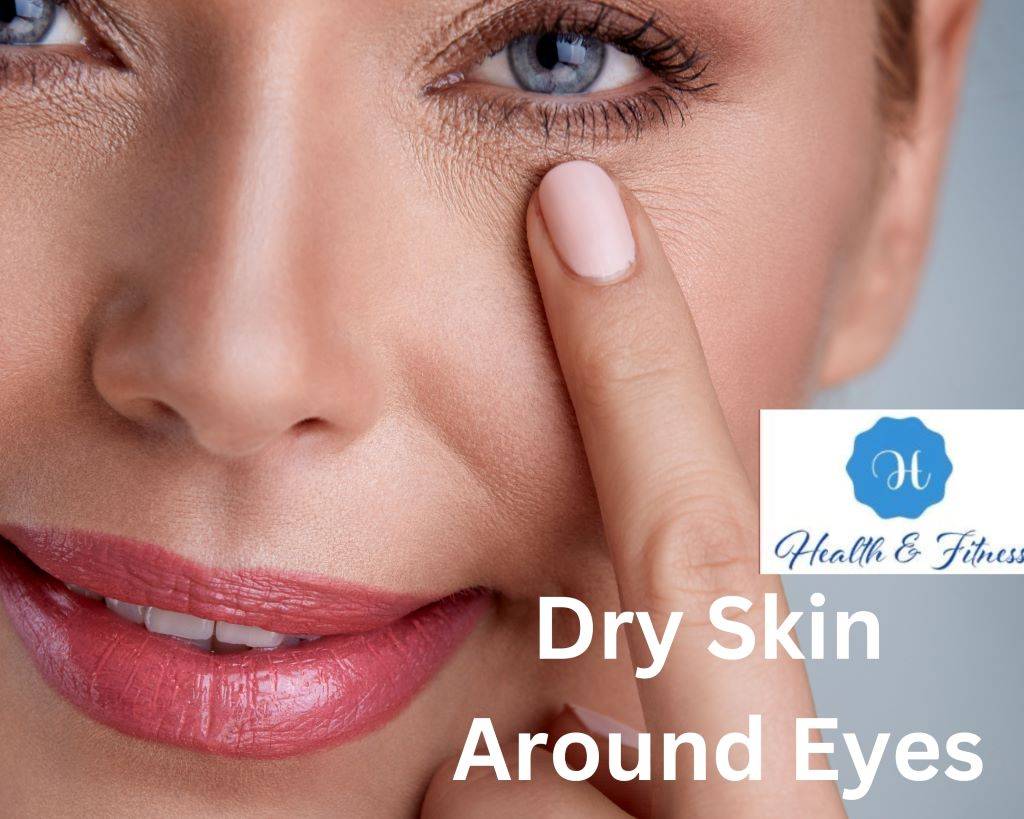Banish beauty concerns with insights on Dry Skin Around Eyes. Uncover the hidden culprit and reclaim your radiant look. Say goodbye to eye dryness!
Warning: This blog article may disclose a skincare secret you didn’t know. At your own risk! Do you ever gaze in the mirror in the morning and wonder why your eyes attract all your beauty issues? Late-night Netflix binges, junk food, or genetics? You have an invisible enemy in your skincare routine. Now is the moment to address dry skin around your eyes.
Picture this: You’ve finished your evening skincare regimen with a luscious face mask, mild exfoliant, and nourishing eye cream. All is well except for those stubborn dry spots around your eyes. Why is this happening? How can you permanently remove this hidden culprit? Find solutions to these Dry Skin Around Eyes questions and more!
Why Dry Skin Around Eyes Is a Problem?
Before we dive into the solutions, let’s first understand why dry skin around the eyes is such a big deal.
1-It Makes You Look Tired
The skin around your eyes is some of your body’s thinnest and most delicate. When it’s dry, it can become tight, flaky, and wrinkled, leaving you looking (and feeling) exhausted. No amount of concealer can hide the fact that your eyes are begging for some TLC.
2- It Ages You
Dry skin around your eyes can lead to fine lines and wrinkles, making you appear older than you are. The good news is that it’s never too late to start taking care of this sensitive area.
3- It Affects Your Makeup Game
Applying makeup on dry skin is a recipe for disaster. Foundation can look cakey and uneven, while eyeshadows and liners can crease and smudge. Say goodbye to your flawless makeup look if you don’t address the dryness first. Now that you know the problems dry skin around the eyes can cause, let’s get to the solutions!
Dry Skin Around Eyes: Symptoms
Dry skin around the eyes can manifest in various ways, with some common symptoms including:
- Flakiness or scaling of the skin
- Redness or irritation
- Itching or discomfort
- Tightness or a feeling of skin being stretched
- Fine lines or wrinkles
- Sensitivity to skincare products or makeup
Causes of Dry Skin Around Eyes
Several factors can contribute to dry skin around the eyes, including:
- Ageing: Our skin naturally loses moisture and elasticity as we age, making it more prone to dryness.
- Environmental factors: Cold weather, low humidity, and exposure to wind can strip the skin of its natural moisture, leading to dryness around the eyes.
- Harsh skincare products: Using skincare products that contain harsh ingredients or over-exfoliating the skin can disrupt the skin’s natural moisture barrier, causing dryness.
- Skin conditions: Certain skin conditions, such as eczema, psoriasis, or contact dermatitis, can cause dry, irritated skin around the eyes.
- Dehydration: Not consuming enough water can lead to dehydration, which can affect the skin’s overall health and appearance.
- Allergies: Allergic reactions to certain substances, such as makeup or skincare products, can cause dry, irritated skin around the eyes.
Dry Skin Around Eyes: Treatment
To treat dry skin around the eyes, consider the following tips:
- Use a gentle, fragrance-free cleanser to wash your face, avoiding harsh soaps or scrubs.
- Apply a hydrating eye cream or moisturizer specifically formulated for the delicate skin around the eyes. Look for products containing ingredients like hyaluronic acid, ceramide, or glycerin, which help to lock in moisture.
- Protect your skin from environmental factors by wearing sunglasses and using a humidifier in your home during dry, cold months.
- Avoid rubbing or scratching the skin around your eyes, as this can further irritate the area and worsen dryness.
- Drink plenty of water to stay hydrated and support overall skin health.
- Consult a dermatologist if your dry skin persists or worsens, as they can recommend appropriate treatments or identify any underlying skin conditions.
Who Suffers from Dry Skin Under Eyes?
Dry skin under the eyes can affect people of all ages, genders, and skin types. However, certain factors may make some individuals more prone to experiencing dry skin around the eyes, including:
- In older individuals, the skin naturally loses moisture and elasticity with age.
- Those with a history of skin conditions, such as eczema, psoriasis, or contact dermatitis.
- Individuals with sensitive skin or allergies to certain substances in makeup or skincare products.
- People living in cold, dry climates or exposed to harsh environmental factors.
Identifying the cause of dry skin around the eyes and implementing appropriate treatments to alleviate symptoms and improve overall skin health is essential.
How to Combat Dry Skin Around Eyes

let us dive into the Treatment of Dry Skin Around Eyes
1- Use a Gentle Cleanser
Many facial cleansers contain ingredients that can be too harsh for the delicate skin around your eyes. Choose a gentle, fragrance-free cleanser that won’t strip your skin of its natural moisture. Bonus points if it’s specifically formulated for sensitive skin.
2- Hydrate, Hydrate, Hydrate
It’s no secret that hydration is vital to healthy skin. Drink plenty of water throughout the day, and consider adding a humidifier to your bedroom to combat dry air. Your skin will thank you!
3- Choose the Right Eye Cream
Not all eye creams are equal; some can even contribute to dryness. Look for a formula that contains hydrating ingredients like hyaluronic acid, ceramide, or glycerin. Avoid products with alcohol, fragrance, or other harsh ingredients that can irritate the delicate eye area.
4- Be Gentle with Your Skin
When applying skincare products or makeup, be gentle with the skin around your eyes. Tugging and rubbing can lead to further dryness and irritation. Instead, use your ring finger to pat products onto your skin gently.
5- Protect Your Skin from the Sun
Sun damage is a major contributor to dry skin, so apply a broad-spectrum sunscreen with at least SPF 30 daily. Don’t forget to reapply throughout the day, especially if you’re spending time outdoors.
6- Invest in a Good Pair of Sunglasses
Sunglasses aren’t just a fashion statement; they’re also essential for protecting your eyes and the delicate skin around them from harmful UV rays. Choose a pair that blocks 100% of UVA and UVB rays, and wear them whenever you’re outside.
7- Monitor Your Diet
A healthy diet can work wonders for your skin. Ensure you consume foods rich in essential fatty acids (like fish, nuts, and seeds) to help support your skin’s natural barrier function. Also, consider adding a supplement containing omega-3s, as we have shown these to support skin health.
8- Don’t Forget to Exfoliate
Gently exfoliating the skin around your eyes can help to remove dead skin cells and promote a smoother, more youthful appearance. Look for an exfoliator specifically formulated for the eye area, and use it no more than once or twice a week.
9- Consider Professional Treatments
If your dry skin around the eyes is persistent and causing significant discomfort, you may want to seek professional help. A dermatologist can recommend treatments like chemical peels, laser resurfacing, or even prescription-strength ointments to help improve the condition of your skin.
10- Be Patient
It’s important to remember that skin care is a marathon, not a sprint. Be patient and consistent with your routine; over time, you should start to see improvements in the dryness around your eyes.
Conclusion: Dry Skin Around Eyes
Dry skin around the eyes is a common issue that can wreak havoc on your beauty game. But by incorporating the tips above into your skincare routine, you can help combat this hidden culprit and reclaim your radiant, youthful appearance.
So, what are you waiting for? Your eyes deserve the best, and now is the perfect time to start giving them the love and care they need. Share this blog post with your friends and family, and let’s work together to banish dry skin around the eyes for good!
Reference
American Academy of Dermatology Association. (n.d.). Contact Dermatitis. Retrieved from https://www.aad.org/public/diseases/eczema/contact-dermatitis
American Academy of Dermatology Association. (n.d.). Sunscreen FAQs. Retrieved from https://www.aad.org/public/everyday-care/sun-protection/sunscreen-patients/sunscreen-faqs

Adel Galal is a health and wellness writer with over 30 years of experience studying and writing about health, fitness, nutrition, and healthy living. He is the founder of NextFitLife.com, where he shares practical, evidence-based guidance to support long-term health at any age. Adel’s mission is simple:
to help people make smarter health choices that fit real life, at any age.



